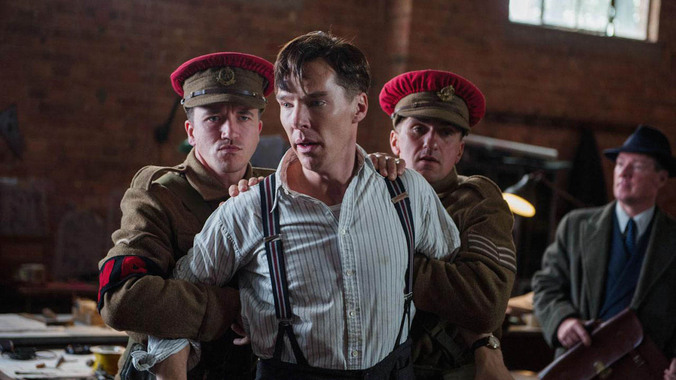Benedict Cumberbatch delivers a sterling Turing – the man who beat Hitler but was destroyed by homophobia, writes Peter Bradshaw.
Despite its flaws, The Imitation Game watchably recreates one of Britain’s finest hours, and one of its most shameful. In 1952, the draconian era of home secretary David Maxwell Fyfe, the mathematician and wartime code-breaker Alan Turing was prosecuted for gross indecency and forced to undergo “chemical castration” hormone treatment in lieu of a prison sentence, after which pointless ordeal he killed himself.
Turing was a war hero equal to Alanbrooke or Montgomery, but unlike these men his lifelong vow of government secrecy meant that he did not have the prestige that might have made his persecutors think twice. Just a decade before, Turing had done perhaps more than any individual to defeat Hitler by cracking the Enigma code in which Nazi military instructions were delivered, and then calculating precisely how much of this information the Allies could act on without giving the game away. But a shabby and squalid homophobia reduced Turing’s post-war career and happiness to rubble.
The Imitation Game has one or two war-movie clichés and all the business about Soviet spying is cumbersome and unconvincing; the film creates a problem for itself with that. It is a problem for which Cumberbatch’s performance is an almost complete solution
For full review by Peter Bradshaw plus movie clips, see Mail & Guardian






